Is it Possible to Get My PhD After My MBA?

In academia, numerous accomplishments can be achieved. You can earn a dual degree and have expertise in multiple fields, or further your career potential by going back to school . But what about progressing from an MBA to a PhD?
In regards to higher education, many consider earning a PhD, or doctorate degree, the pinnacle of success. Usually, due to passion for a particular industry or subject, a PhD candidate will spend years of rigorous research to unpack its intricacies and become a leading expert in the field. At the end of their studies, they are able to finally see their work come to fruition when they receive their doctorate and join alongside other scholars. However, is it typical for an MBA graduate to move onto pursuing their PhD? And is there a specific purpose? Are there different types of PhD programs? What is the difference between a PhD and DBA?
To answer the budding question: yes, you can pursue your PhD after earning your MBA, and choosing to earn a doctorate is entirely up to you and your aspirations. To help you better understand if getting a PhD is the right choice, we look at the path an MBA graduate can take to earn their PhD, one of the higher purposes of a doctorate, and the different types of academic programs.

What is a PhD, and What is it Used For?
By definition, a PhD is a Doctor of Philosophy in a particular discipline, which is why it's also referred to as a doctorate. This focus is typically for individuals highly passionate about a specific subject matter, driven by the pursuit to understand it better through rigorous research. A majority of students seeking their PhD are eager researchers, although there are always exceptions, and each carries out years of highly intensive research to conclude their original thesis and earn their doctorate.
In terms of translating your education into a career, a doctorate can be used in a plethora of fields, especially if one’s thesis is around a wider subject matter and can be a discipline applied to various industries (take organizational development, for example). For those who are passionate about a career in research, a doctoral degree is a perfect fit. Possibly the most popular field for those with a doctorate is a fruitful career in academia, teaching their subject matter to others interested in the same area. Many graduates become faculty members at business schools upon completing their PhD and provide their expertise to their students. Regardless of which industry you choose, you can be assured that a PhD will provide you with numerous opportunities.
How Long Does it Take to Progress from an MBA to PhD?
The timeframe for earning your PhD can vary depending on program and location. Many countries have varying timelines of how long the completion of a doctoral program will take. In the United States, the average is around 4-5 years of completion after receiving your Master of Business Administration.
Do You Need an MBA to Get a PhD?
To be accepted into a doctoral program, you must have a master’s degree. It does not have to be a Master of Business Administration, but it does need to be a master’s of some form. Depending on your area of specialization, it could be advantageous to earn your MBA in pursuit of a PhD if you are planning to embark on a career in business upon completion of your doctorate. Additionally, one important aspect to consider is the program itself. It is important to look into a program’s requirements before applying to meet the eligibility criteria.
The Difference Between a DBA and a PhD
For those specifically interested in a career in business, a Doctor of Business Administration (DBA) is a highly beneficial doctoral program. A DBA focuses on a broader spectrum of business disciplines, dedicating research toward multiple corporate facets, and practical implementation. On the contrary, a PhD narrows into a specific area of discipline and research, emphasizing theory, and it’s potential implications. While both are heavily centered around research and implementation, a DBA sets business executives and leaders on a path to discover new possibilities for their organizations and businesses. In a way, it allows established business professionals to “trailblaze” the way for new and innovative ideas that can disrupt the market and set a precedent for the future of business.
Get Your MBA or DBA at Pepperdine Graziadio Business School
At Pepperdine Graziadio, we proudly offer degrees to accommodate business professionals at any stage of their lives and careers. Our full and part-time MBA programs are designed to prepare candidates for a successful career in values-based business leadership. All of our MBA programs offer a personalized learning approach executed by our world-class faculty. Each program is characterized by its top-ranked business curriculum that can be coupled with an academic concentration.
Our Executive Doctor of Business Administration (DBA) program has been carefully designed for the tenured business leader looking to drive groundbreaking innovations. This rigorous program allows candidates to gain in-depth knowledge and finetune their expertise through applied research. Also, executives enjoy learning alongside changemakers in various industries and participating in exclusive opportunities available only to DBA candidates.
Learn more about which programs fit your career aspirations and academic interests.
Learn more about how to achieve your career goals with a degree from Pepperdine Graziadio Business School.
Help Us Shape the Content You Love:
Blog Topic Feedback Survey.
Pick the topics you love from the dropdown menus below.
Select the topic that most interests you.
Additional Suggested Topic
- Student Life
- Graduate Programs
- Center for Applied Research
- Master's Degree
- Faculty Research
- Sustainability
- Part-Time MBA
- Entrepreneurship
- Talent Management
Copyright © 2024 Pepperdine University
- Privacy Policy
- GDPR Privacy Notice
- Clery Notice
- Terms of Use
- Title IX
- Web Accessibility
- SUGGESTED TOPICS
- The Magazine
- Newsletters
- Managing Yourself
- Managing Teams
- Work-life Balance
- The Big Idea
- Data & Visuals
- Case Selections
- HBR Learning
- Topic Feeds
- Account Settings
- Email Preferences
Why a Doctorate in Business Administration Is Becoming More Valuable
Sponsor content from upGrad.

At the turn of the 20th century, the world was industrializing at a rapid pace. Businesses were growing larger and more complex, with more employees working in more diversified divisions spread across more geographical boundaries.
As a result, demand grew for people who had special training in managing the general operations of a business, which led to the creation and proliferation of the Master of Business Administration (MBA) degree.
More than 100 years later, MBAs have become a commodity that no longer serve organizations’ core needs.
In today’s age of data and information, knowledge has become the most valuable resource. Companies don’t necessarily need more general managers who can assess broad patterns across multiple industries—they need people with deep expertise in specific domains who can analyze data and generate unique insights that lead to better business decisions.
That’s why Doctorate in Business Administration (DBA) holders are becoming increasingly valuable in the modern workplace.
DBA is a professional degree representing the highest level of qualification in management. In contrast to an MBA, it takes students on a different path toward acquiring and using business knowledge.
For an MBA, students spend two years taking a broad range of practical courses to learn about several pillars of business—such as accounting, finance, marketing, leadership, operations, strategy, and ethics—to help them become effective leaders across many industries.
By contrast, DBAs spend up to two years studying academic literature across several domains and up to two additional years designing and executing an original research project: a dissertation focused on one domain. The primary goal of a DBA is to produce scholarly individuals who have deep expertise in a field of management.
When seeking executive-level positions, DBAs’ “Dr.” titles are likely to help them stand out from their peers. DBAs can also pursue high-level positions in areas such as consulting by becoming subject-matter experts—or maintain ties with academia as full-time or adjunct professors.
DBAs’ training gives them diverse career options. The academic literature they read gives them expertise in understanding management theories that can help them analyze real-world situations and differentiate the signal from the noise. A DBA specializing in innovation can assess whether newcomers to a market pose a credible threat as a disruptive innovation to an existing company.
Students then learn advanced scientific techniques in quantitative and/or qualitative methodologies, which trains them in analyzing data to generate valid inferences that their organizations can use for decision-making purposes. Rather than relying on gut feel and graphs, DBAs can use powerful techniques such as sampling data to reduce bias, using statistical regressions to identify the strongest factors that influence an outcome, or designing an experiment to gain 100% certainty over the causal relationship between variables.
Finally, DBAs combine their business knowledge with analytical skills to design and execute original research studies, making them the world’s leading experts in particular domains.
DBAs also stand out because they represent only 2% of all people who hold higher degrees in business. In 2021, more than 250,000 students graduated with MBAs or specialist degrees in business; only 5,000 graduated with doctorates.
While a DBA may represent an attractive option that can be highly valuable to organizations today, they are not necessarily recommended for everyone.
To help you determine whether a DBA is right for you, the most important question to ask yourself centers on whether you’re satisfied with the tools and frameworks you use to analyze data and information to make important business decisions. If you’ve ever found yourself wondering where these frameworks come from—or whether there might be a better way to make decisions—consider applying to a DBA program. These programs are designed to channel deep intellectual interests and passions toward producing business knowledge that’s both theoretically novel and practically relevant.
DBA training may help you develop deeper knowledge than an MBA program will while opening doors to more ambitious careers in industry or academia. While MBA degrees are designed to meet the needs of 20th-century businesses, DBAs can help meet the needs of organizations today—and well into the future.
Learn more about how earning a DBA can help you step up your career.
- Joint Degrees
MBA/PhD with the Yale Graduate School of Arts and Sciences
The joint-degree program offers an MBA in combination with a PhD in the sciences or humanities from the Yale Graduate School of Arts and Sciences.
An MBA may be pursued in combination with a PhD in one of a wide array of areas of study , in the biological sciences, engineering and applied sciences, the humanities, the physical sciences, and social sciences. An MBA/PhD is not available in the management disciplines .
Students typically complete both degrees in approximately seven years, rather than the eight or more that would be required if the degrees were pursued separately. Programs are highly customized to fit each student's individual course of study, and are generally determined at the time of admission. Students must complete one full year at Yale SOM, during which they complete the integrated MBA curriculum, and one year taking courses at both schools. Students typically begin their full year at Yale SOM after PhD qualifying exams have been passed.
Students receive financial support from the Graduate School of Arts and Sciences during the semesters in which they are enrolled there. They pay tuition during the three semesters during which they are enrolled at Yale SOM.
Learn more about admission to the Yale School of Management. Learn more about admission to the Yale Graduate School of Arts and Sciences.
Doctoral Programs
- Harvard Business School →
- Doctoral Programs →
New Ideas for a Changing World New Ideas for a Changing World
Phd programs , accounting & management, business economics (includes finance), health policy (management), organizational behavior, technology & operations management, admissions , unlock your phd journey with full financial aid , placement , research community .
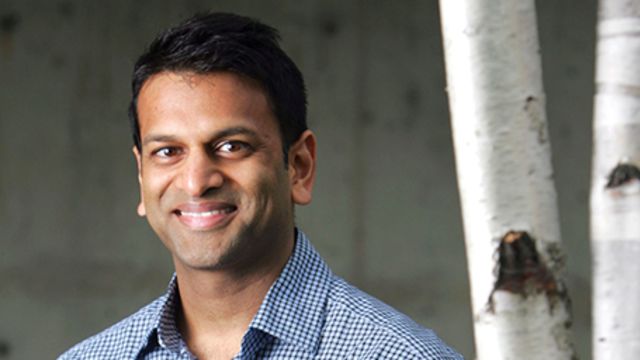
Filippo Mezzanotti
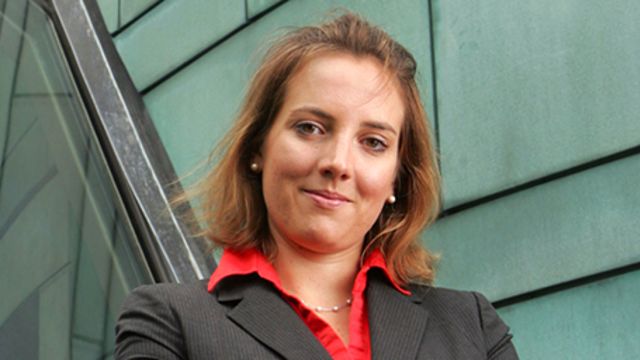
Sarah Wolfolds
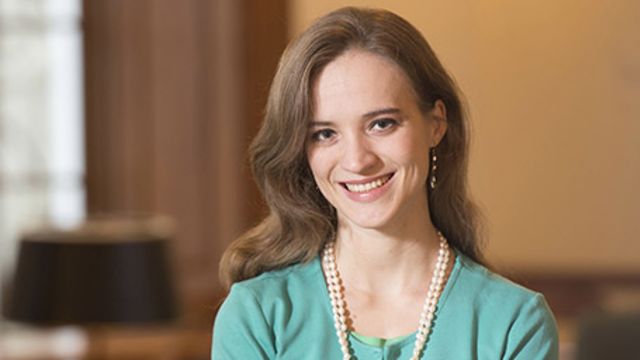
Anastassia Fedyk
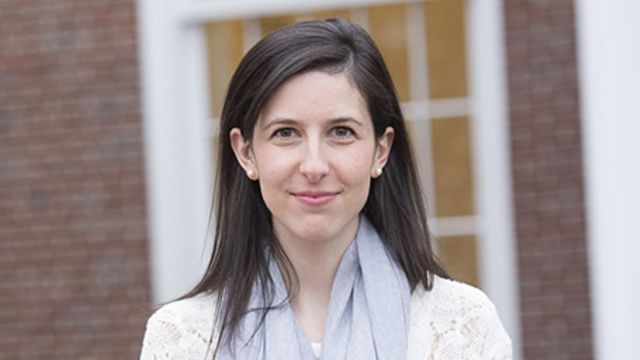
Alexandra C. Feldberg
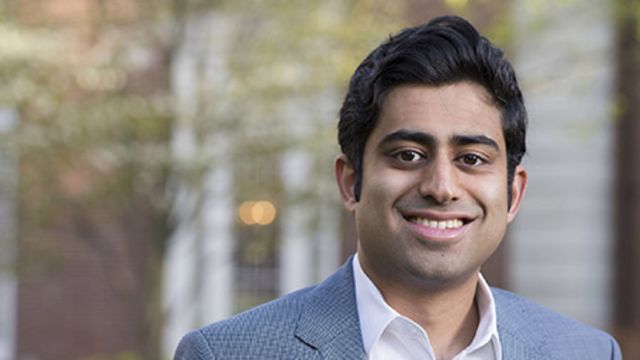
Rohan Kekre

Do Yoon Kim
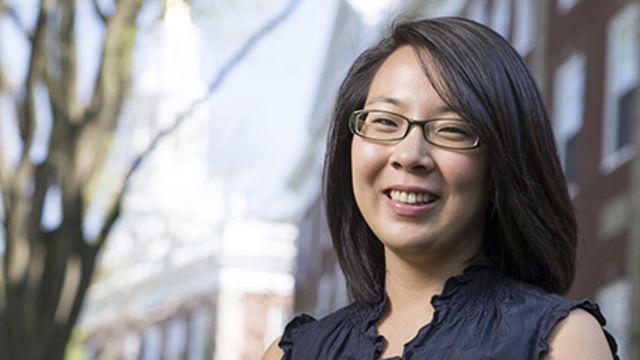
Talia Gillis

Erica Moszkowski

Sagar Saxena
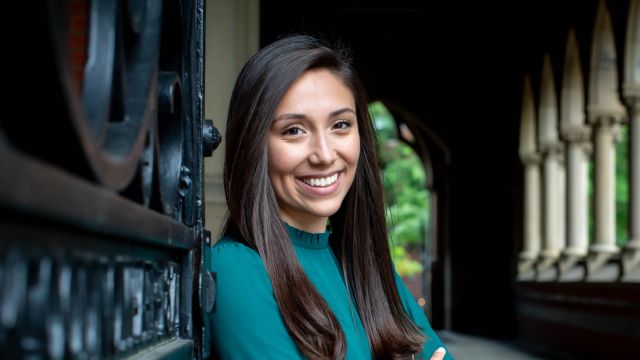
Aurora Turek

A Jay Holmgren

Kala Viswanathan

Ahmmad Brown

Ximena Garcia-Rada

Patrick Ferguson

Byungyeon Kim

Ta-Wei "David" Huang

Mengjie "Magie" Cheng
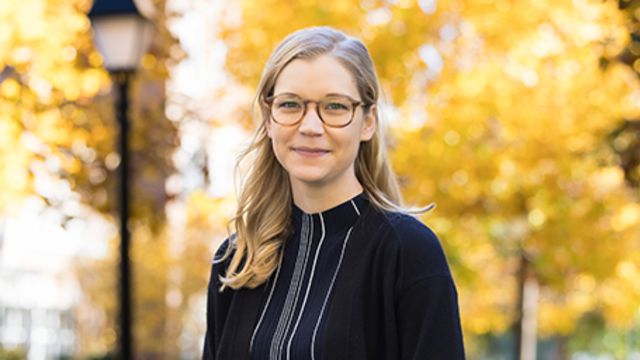
Omar Olivarez

Dafna Bearson

Justine Murray

Celia Stafford

Olivia Zhao

Rowan Clarke

Jaylon Sherrell

Elliot Tobin

Fanele Mashwama

Professor Maria Roche
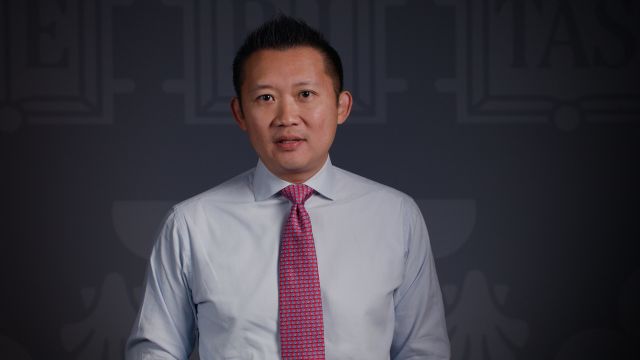
Professor Charles Wang
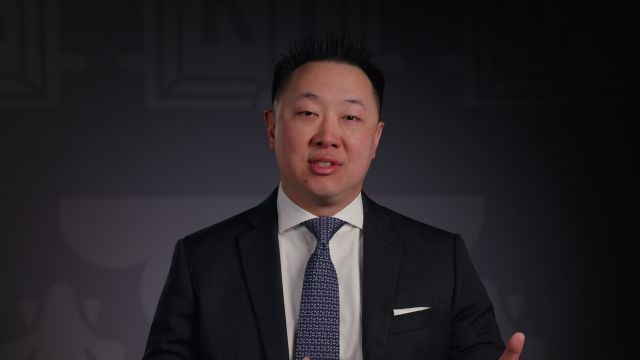
Professor Andy Wu

Tiona Zuzul

Lumuba Seegars
Student research , capital market integration and growth across the united states.
- 31 OCT 2024
- Faculty & Research
Trade Policy in the Shadow of Conflict: The Case of Dual-use Goods
The case for climate alliances.
- 01 OCT 2024
- Stanford Social Innovation Review
Find a Current Student
MIT Sloan is the leader in research and teaching in AI. Dive in to discover why.
Which program is right for you?

Through intellectual rigor and experiential learning, this full-time, two-year MBA program develops leaders who make a difference in the world.
Earn your MBA and SM in engineering with this transformative two-year program.
A rigorous, hands-on program that prepares adaptive problem solvers for premier finance careers.
A 12-month program focused on applying the tools of modern data science, optimization and machine learning to solve real-world business problems.
Combine an international MBA with a deep dive into management science. A special opportunity for partner and affiliate schools only.
A doctoral program that produces outstanding scholars who are leading in their fields of research.
Bring a business perspective to your technical and quantitative expertise with a bachelor’s degree in management, business analytics, or finance.
Apply now and work for two to five years. We'll save you a seat in our MBA class when you're ready to come back to campus for your degree.
Executive Programs
The 20-month program teaches the science of management to mid-career leaders who want to move from success to significance.
A full-time MBA program for mid-career leaders eager to dedicate one year of discovery for a lifetime of impact.
A joint program for mid-career professionals that integrates engineering and systems thinking. Earn your master’s degree in engineering and management.
Non-degree programs for senior executives and high-potential managers.
A non-degree, customizable program for mid-career professionals.
PhD Program
MIT Sloan PhD Program graduates are leaders in their fields, conducting research with global impact on the complex organizational, financial, and technological issues that characterize an increasingly competitive and challenging business world.
PhD studies at MIT Sloan are intense and individual in nature, demanding a great deal of time, initiative, and discipline from every candidate. But the rewards of such rigor are tremendous: MIT Sloan PhD graduates go on to teach and conduct research at the world's most prestigious universities.
Behavioral & Policy Sciences
Economic Sociology
Institute for Work & Employment Research
Organization Studies
Technological Innovation, Entrepreneurship & Strategic Management
Economics, Finance & Accounting
Accounting
Management Science
Information Technology
System Dynamics
Those interested in a PhD in Operations Research should visit the Operations Research Center .
What We Seek
The MIT Sloan PhD Program looks for a small number of people who will successfully complete our rigorous and demanding program and then thrive in academic research careers. The admission selection process is highly competitive; we aim for a class size of nineteen students, admitted from a pool of hundreds of applicants.
Read about our admissions process and requirements
Program Structure
Coursework PhD students fulfill their coursework and methodology requirements by taking advantage of the more than 150 subjects offered at MIT Sloan — in addition to hundreds more offered across MIT. Students may also avail themselves of courses at other local universities. Course selection is made under the guidance of faculty in the student's research group.
Master’s Thesis In addition to taking elective classes, students in the second or third year of the program are expected to complete their first major research paper which will be a master’s thesis, earning them an SM in Management Research.
General Examinations The single most important hurdle in the PhD experience at MIT Sloan is the General Examinations. The exact form of these exams can vary according to the faculty and students involved, but they always involve written and oral parts given by the area faculty covering all of the relevant material.
Dissertation After students complete the General Examinations, the stage is set for them to begin work on a dissertation or thesis, the most unstructured and difficult part of doctoral studies. Students must choose a topic, define it to the satisfaction of a faculty committee, investigate it thoroughly (including gathering data at field sites), and write the dissertation.
Dissertations typically take one of two forms, either book-style chapters or separate essays. They are usually completed within two to three years of passing the General Examinations. The final step before achieving the doctorate is a public defense seminar, which is open to the entire MIT Sloan community.
About Stanford GSB
- The Leadership
- Dean’s Updates
- School News & History
- Business, Government & Society
- Centers & Institutes
- Center for Entrepreneurial Studies
- Center for Social Innovation
- Stanford Seed
About the Experience
- Learning at Stanford GSB
- Experiential Learning
- Guest Speakers
- Entrepreneurship
- Social Innovation
- Communication
- Life at Stanford GSB
- Collaborative Environment
- Activities & Organizations
- Student Services
- Housing Options
- International Students
Full-Time Degree Programs
- Why Stanford MBA
- Academic Experience
- Financial Aid
- Why Stanford MSx
Research Fellows Program
- See All Programs
Non-Degree & Certificate Programs
- Executive Education
- Stanford Executive Program
- Programs for Organizations
- The Difference
- Online Programs
- Stanford LEAD
- Seed Transformation Program
- Aspire Program
- Seed Spark Program
- Faculty Profiles
- Academic Areas
- Awards & Honors
- Conferences
Faculty Research
- Publications
- Working Papers
- Case Studies
Research Hub
- Research Labs & Initiatives
- Business Library
- Data, Analytics & Research Computing
- Behavioral Lab
- Faculty Recruiting
- See All Jobs
Research Labs
- Cities, Housing & Society Lab
- Golub Capital Social Impact Lab
Research Initiatives
- Corporate Governance Research Initiative
- Corporations and Society Initiative
- Policy and Innovation Initiative
- Rapid Decarbonization Initiative
- Stanford Latino Entrepreneurship Initiative
- Value Chain Innovation Initiative
- Venture Capital Initiative
- Career & Success
- Climate & Sustainability
- Corporate Governance
- Culture & Society
- Finance & Investing
- Government & Politics
- Leadership & Management
- Markets and Trade
- Operations & Logistics
- Opportunity & Access
- Technology & AI
- Opinion & Analysis
- Email Newsletter
Welcome, Alumni
- Communities
- Digital Communities & Tools
- Regional Chapters
- Women’s Programs
- Identity Chapters
- Find Your Reunion
- Career Resources
- Job Search Resources
- Career & Life Transitions
- Programs & Webinars
- Career Video Library
- Alumni Education
- Research Resources
- Volunteering
- Alumni News
- Class Notes
- Alumni Voices
- Contact Alumni Relations
- Upcoming Events
Admission Events & Information Sessions
- MBA Program
- MSx Program
- PhD Program
- Alumni Events
- All Other Events
- Requirements
- Requirements: Behavioral
- Requirements: Quantitative
- Requirements: Macro
- Requirements: Micro
- Annual Evaluations
- Field Examination
- Research Activities
- Research Papers
- Dissertation
- Oral Examination
- Current Students
- Entering Class Profile
- Education & CV
- GMAT & GRE
- International Applicants
- Statement of Purpose
- Letters of Recommendation
- Reapplicants
- Application Fee Waiver
- Deadline & Decisions
- Job Market Candidates
- Academic Placements
- Stay in Touch
- Fields of Study
- Student Life

Our faculty members are uncompromisingly committed to student success

Students pursue an intensely focused, highly energized academic experience in their chosen discipline

Recognized experts in their fields, our faculty continually publish groundbreaking research

Our collaborative culture enables students to support one another, and most students live on campus

Learn more about our application materials and what we look for in a candidate

Our graduates pursue tenure-track academic placements at top institutions around the world
Stanford GSB PhD Program
Discover a focus and intensity greater than you may have thought possible. As a PhD student at Stanford Graduate School of Business, you will be inspired and challenged to explore novel ideas and complex questions.
Fall 2025 applications are now open. The application deadline is December 1, 2024 at 5:00 PM PST.

Become an Outstanding Scholar
Our PhD Program is designed to develop outstanding scholars for careers in research and teaching at leading academic institutions throughout the world. You will embark on a challenging and meaningful experience, focusing your academic study in one of seven distinct fields within the PhD degree program.
Is a PhD Right for You?
Strong PhD candidates are full of ideas and curiosity, with a passion and aptitude for research. If you’re prepared to embark on a rigorous career in research and develop your full potential, we invite you to explore the possibilities of a PhD in business. Admitted students receive full fellowships for their doctoral studies.
Faculty Publications
Strategy theory using analogy: rationale, tools and examples, the financial restructuring tool set: how to fix your broken balance sheet, agency mbs as safe assets, phd student voices.

Benjamin Tremblay-Auger

Pauline Liang

Mohamed Hussein

Lina Lukyantseva
School news, stanford economist guido imbens wins nobel in economic sciences, susan athey named president of american economic association, teaching through a pandemic: students recognize two faculty members for their efforts, diversifying the pool of phd students will require systemic change.
Gain valuable research experience and training in a two-year, pre-doctoral opportunity at Stanford University.
- See the Current DEI Report
- Supporting Data
- Research & Insights
- Share Your Thoughts
- Search Fund Primer
- Teaching & Curriculum
- Affiliated Faculty
- Faculty Advisors
- Louis W. Foster Resource Center
- Defining Social Innovation
- Impact Compass
- Global Health Innovation Insights
- Faculty Affiliates
- Student Awards & Certificates
- Changemakers
- Dean Jonathan Levin
- Dean Garth Saloner
- Dean Robert Joss
- Dean Michael Spence
- Dean Robert Jaedicke
- Dean Rene McPherson
- Dean Arjay Miller
- Dean Ernest Arbuckle
- Dean Jacob Hugh Jackson
- Dean Willard Hotchkiss
- Faculty in Memoriam
- Stanford GSB Firsts
- Annual Alumni Dinner
- Class of 2024 Candidates
- Certificate & Award Recipients
- Dean’s Remarks
- Keynote Address
- Teaching Approach
- Analysis and Measurement of Impact
- The Corporate Entrepreneur: Startup in a Grown-Up Enterprise
- Data-Driven Impact
- Designing Experiments for Impact
- Digital Marketing
- The Founder’s Right Hand
- Marketing for Measurable Change
- Product Management
- Public Policy Lab: Financial Challenges Facing US Cities
- Public Policy Lab: Homelessness in California
- Lab Features
- Curricular Integration
- View From The Top
- Formation of New Ventures
- Managing Growing Enterprises
- Startup Garage
- Explore Beyond the Classroom
- Stanford Venture Studio
- Summer Program
- Workshops & Events
- The Five Lenses of Entrepreneurship
- Leadership Labs
- Executive Challenge
- Arbuckle Leadership Fellows Program
- Selection Process
- Training Schedule
- Time Commitment
- Learning Expectations
- Post-Training Opportunities
- Who Should Apply
- Introductory T-Groups
- Leadership for Society Program
- Certificate
- 2024 Awardees
- 2023 Awardees
- 2022 Awardees
- 2021 Awardees
- 2020 Awardees
- 2019 Awardees
- 2018 Awardees
- Social Management Immersion Fund
- Stanford Impact Founder Fellowships
- Stanford Impact Leader Prizes
- Social Entrepreneurship
- Stanford GSB Impact Fund
- Economic Development
- Energy & Environment
- Stanford GSB Residences
- Environmental Leadership
- Stanford GSB Artwork
- A Closer Look
- California & the Bay Area
- Voices of Stanford GSB
- Business & Beneficial Technology
- Business & Sustainability
- Business & Free Markets
- Business, Government, and Society Forum
- Get Involved
- Second Year
- Global Experiences
- JD/MBA Joint Degree
- MA Education/MBA Joint Degree
- MD/MBA Dual Degree
- MPP/MBA Joint Degree
- MS Computer Science/MBA Joint Degree
- MS Electrical Engineering/MBA Joint Degree
- MS Environment and Resources (E-IPER)/MBA Joint Degree
- Academic Calendar
- Clubs & Activities
- LGBTQ+ Students
- Military Veterans
- Minorities & People of Color
- Partners & Families
- Students with Disabilities
- Student Support
- Residential Life
- Student Voices
- MBA Alumni Voices
- A Week in the Life
- Career Support
- Employment Outcomes
- Cost of Attendance
- Knight-Hennessy Scholars Program
- Yellow Ribbon Program
- BOLD Fellows Fund
- Application Process
- Loan Forgiveness
- Contact the Financial Aid Office
- Evaluation Criteria
- English Language Proficiency
- Personal Information, Activities & Awards
- Professional Experience
- Optional Short Answer Questions
- Application Fee
- Reapplication
- Deferred Enrollment
- Joint & Dual Degrees
- Event Schedule
- Ambassadors
- New & Noteworthy
- Ask a Question
- See Why Stanford MSx
- Is MSx Right for You?
- MSx Stories
- Leadership Development
- How You Will Learn
- Admission Events
- Personal Information
- GMAT, GRE & EA
- English Proficiency Tests
- Career Change
- Career Advancement
- Career Support and Resources
- Daycare, Schools & Camps
- U.S. Citizens and Permanent Residents
- Faculty Mentors
- Current Fellows
- Standard Track
- Fellowship & Benefits
- Group Enrollment
- Program Formats
- Developing a Program
- Diversity & Inclusion
- Strategic Transformation
- Program Experience
- Contact Client Services
- Campus Experience
- Live Online Experience
- Silicon Valley & Bay Area
- Digital Credentials
- Faculty Spotlights
- Participant Spotlights
- Eligibility
- International Participants
- Stanford Ignite
- Frequently Asked Questions
- Operations, Information & Technology
- Organizational Behavior
- Political Economy
- Classical Liberalism
- The Eddie Lunch
- Accounting Summer Camp
- California Econometrics Conference
- California Quantitative Marketing PhD Conference
- California School Conference
- China India Insights Conference
- Homo economicus, Evolving
- Political Economics (2023–24)
- Scaling Geologic Storage of CO2 (2023–24)
- A Resilient Pacific: Building Connections, Envisioning Solutions
- Adaptation and Innovation
- Changing Climate
- Civil Society
- Climate Impact Summit
- Climate Science
- Corporate Carbon Disclosures
- Earth’s Seafloor
- Environmental Justice
- Operations and Information Technology
- Organizations
- Sustainability Reporting and Control
- Taking the Pulse of the Planet
- Urban Infrastructure
- Watershed Restoration
- Junior Faculty Workshop on Financial Regulation and Banking
- Ken Singleton Celebration
- Marketing Camp
- Quantitative Marketing PhD Alumni Conference
- Presentations
- Theory and Inference in Accounting Research
- Stanford Closer Look Series
- Quick Guides
- Core Concepts
- Journal Articles
- Glossary of Terms
- Faculty & Staff
- Subscribe to Corporate Governance Emails
- Researchers & Students
- Research Approach
- Charitable Giving
- Financial Health
- Government Services
- Workers & Careers
- Short Course
- Adaptive & Iterative Experimentation
- Incentive Design
- Social Sciences & Behavioral Nudges
- Bandit Experiment Application
- Conferences & Events
- Reading Materials
- Energy Entrepreneurship
- Faculty & Affiliates
- SOLE Report
- Responsible Supply Chains
- Current Study Usage
- Pre-Registration Information
- Participate in a Study
- Founding Donors
- Program Contacts
- Location Information
- Participant Profile
- Network Membership
- Program Impact
- Collaborators
- Entrepreneur Profiles
- Company Spotlights
- Seed Transformation Network
- Responsibilities
- Current Coaches
- How to Apply
- Meet the Consultants
- Meet the Interns
- Intern Profiles
- Collaborate
- Research Library
- News & Insights
- Databases & Datasets
- Research Guides
- Consultations
- Research Workshops
- Career Research
- Research Data Services
- Course Reserves
- Course Research Guides
- Material Loan Periods
- Fines & Other Charges
- Document Delivery
- Interlibrary Loan
- Equipment Checkout
- Print & Scan
- MBA & MSx Students
- PhD Students
- Other Stanford Students
- Faculty Assistants
- Research Assistants
- Stanford GSB Alumni
- Telling Our Story
- Staff Directory
- Site Registration
- Alumni Directory
- Alumni Email
- Privacy Settings & My Profile
- Success Stories
- The Story of Circles
- Support Women’s Circles
- Stanford Women on Boards Initiative
- Alumnae Spotlights
- Insights & Research
- Industry & Professional
- Entrepreneurial Commitment Group
- Recent Alumni
- Half-Century Club
- Fall Reunions
- Spring Reunions
- MBA 25th Reunion
- Half-Century Club Reunion
- Faculty Lectures
- Ernest C. Arbuckle Award
- Alison Elliott Exceptional Achievement Award
- ENCORE Award
- Excellence in Leadership Award
- John W. Gardner Volunteer Leadership Award
- Robert K. Jaedicke Faculty Award
- Jack McDonald Military Service Appreciation Award
- Jerry I. Porras Latino Leadership Award
- Tapestry Award
- Student & Alumni Events
- Executive Recruiters
- Interviewing
- Land the Perfect Job with LinkedIn
- Negotiating
- Elevator Pitch
- Email Best Practices
- Resumes & Cover Letters
- Self-Assessment
- Whitney Birdwell Ball
- Margaret Brooks
- Bryn Panee Burkhart
- Margaret Chan
- Ricki Frankel
- Peter Gandolfo
- Cindy W. Greig
- Natalie Guillen
- Carly Janson
- Sloan Klein
- Sherri Appel Lassila
- Stuart Meyer
- Tanisha Parrish
- Virginia Roberson
- Philippe Taieb
- Michael Takagawa
- Terra Winston
- Johanna Wise
- Debbie Wolter
- Rebecca Zucker
- Complimentary Coaching
- Changing Careers
- Work-Life Integration
- Career Breaks
- Flexible Work
- Encore Careers
- Join a Board
- D&B Hoovers
- Data Axle (ReferenceUSA)
- EBSCO Business Source
- Global Newsstream
- Market Share Reporter
- ProQuest One Business
- RKMA Market Research Handbook Series
- Student Clubs
- Entrepreneurial Students
- Stanford GSB Trust
- Alumni Community
- How to Volunteer
- Springboard Sessions
- Consulting Projects
- 2020 – 2029
- 2010 – 2019
- 2000 – 2009
- 1990 – 1999
- 1980 – 1989
- 1970 – 1979
- 1960 – 1969
- 1950 – 1959
- 1940 – 1949
- Service Areas
- ACT History
- ACT Awards Celebration
- ACT Governance Structure
- Building Leadership for ACT
- Individual Leadership Positions
- Leadership Role Overview
- Purpose of the ACT Management Board
- Contact ACT
- Business & Nonprofit Communities
- Reunion Volunteers
- Ways to Give
- Fiscal Year Report
- Business School Fund Leadership Council
- Planned Giving Options
- Planned Giving Benefits
- Planned Gifts and Reunions
- Legacy Partners
- Giving News & Stories
- Giving Deadlines
- Development Staff
- Submit Class Notes
- Class Secretaries
- Board of Directors
- Health Care
- Sustainability
- Class Takeaways
- All Else Equal: Making Better Decisions
- If/Then: Business, Leadership, Society
- Grit & Growth
- Think Fast, Talk Smart
- Spring 2022
- Spring 2021
- Autumn 2020
- Summer 2020
- Winter 2020
- In the Media
- For Journalists
- DCI Fellows
- Other Auditors
- Academic Calendar & Deadlines
- Course Materials
- Entrepreneurial Resources
- Campus Drive Grove
- Campus Drive Lawn
- CEMEX Auditorium
- King Community Court
- Seawell Family Boardroom
- Stanford GSB Bowl
- Stanford Investors Common
- Town Square
- Vidalakis Courtyard
- Vidalakis Dining Hall
- Catering Services
- Policies & Guidelines
- Reservations
- Contact Faculty Recruiting
- Lecturer Positions
- Postdoctoral Positions
- Accommodations
- CMC-Managed Interviews
- Recruiter-Managed Interviews
- Virtual Interviews
- Campus & Virtual
- Search for Candidates
- Think Globally
- Recruiting Calendar
- Recruiting Policies
- Full-Time Employment
- Summer Employment
- Entrepreneurial Summer Program
- Global Management Immersion Experience
- Social-Purpose Summer Internships
- Process Overview
- Project Types
- Client Eligibility Criteria
- Client Screening
- ACT Leadership
- Social Innovation & Nonprofit Management Resources
- Develop Your Organization’s Talent
- Centers & Initiatives
- Student Fellowships

- Online MBA Program Curriculum
- Online Student Experience
- College of Business Faculty
- Explore MBA Careers
- How to Apply
- International Applicants
- Online Community
- About The College of Business
- Career Resources
Get Program Details
Mba to phd: what is the recommended path.

Dr. Nick Dahan, Professor and Director, Online MBA California State University at Monterey Bay College of Business
As you are planning out your education and career, you may be considering furthering your education beyond an MBA with a doctorate degree in a business-related field. This is a big decision, given that it is likely a three- to six-year commitment that would affect your career and your family, both emotionally and financially. Be sure to make this decision after taking some time for careful consideration.
Here are a few key questions to ask in order to help with the MBA to PhD decision process.
Why Do You Need a Doctorate?
This is the most important question.
If you have substantial executive experience and you are interested in teaching in higher education, you may be eligible for the Association to Advance Collegiate Schools of Business’ (AACSB) “bridge” program , which helps executives become effective instructors. This program is designed for highly seasoned business leaders who are only interested in teaching, not pursuing research. They can teach in business schools either part-time or full-time in a contractual teaching-focused position (called non-tenure track, or clinical, or professor of teaching). In that case, a doctorate is not needed at all.
If the only reason to pursue a doctorate is to study a business discipline or to deepen your quantitative skills beyond what is possible in an MBA (even one with a concentration), you may want to consider a graduate certificate or a master of science (MSc). They offer the opportunity to take three to 12 courses with a narrower focus, such as data analytics, human resources management, project management, digital marketing, etc. A certificate or MSc is a great complement to an MBA, especially if your MBA consisted of, say, 10 courses covering 10 different business disciplines, with little opportunity to go deeper on any particular subject.
It must also be stressed that boosting earnings is rarely a strong reason to pursue a doctorate in business if you already hold an MBA or MSc in a business subject. As careers in the private sector are more lucrative and typically do not require a doctorate (other than a few corporate economist and financial positions where a PhD is a must), the financial return on the investment into a business PhD may actually be negative if you plan to go into academia compared to a private-sector career with an MBA. As an example, through a successful career in the private sector, a business executive may well earn more than $200K annually five or 10 years after completing their master’s degree in business, whereas it is highly unlikely that a business academic with a PhD will ever reach that salary level. However, while significantly increasing your earnings may not be the main reason, there are obviously plenty of other valid reasons for pursuing a doctorate.
Valid reasons to go from an MBA to a PhD include:
- Ensuring you achieve the deepest level of expertise on a subject matter, which can then be leveraged in the private sector, public sector, and consulting. Sometimes a graduate certificate or even an MSc is not enough for the kind of career you seek out
- Getting the opportunity to teach in higher education, either part-time as an adjunct while keeping your full-time job in business, or full-time by switching from a business career to academia. If the latter, the choice is often motivated by seeking a second career that allows more freedom and flexibility (stable employment and great benefits are important perks).
- For marginalized populations , it may be an important way to be given the respect they deserve. And business doctorate programs face a serious underrepresentation of minorities, in part because many programs do not offer scholarships and assistantships (instead, they are money-making programs for the universities), which decreases the likelihood of minority enrollment . Fortunately, there are initiatives to redress the situation and grow a pipeline of minority PhDs that can ultimately join academia, such as McNair fellowships in business , and The PhD Project .
Which Kind of Doctorate?
Not all doctorates are created equal. You have to choose one that matches your career goals:
Doctorate in Education (EdD)
This is not a doctorate in business per se. As such, it is very unlikely to lead to a full-time position at a four-year college nowadays. However, it can be useful in consulting, in specialized areas of Human Resource Management (adult education/training), or to pursue a leadership career in education (high school and school district, or on the administrative side of higher education such as Dean of students, Vice-Provost, etc.).
Doctorate in Business Administration (DBA)
In business fields, there are DBA and Executive Doctorate in Business Administration (EDBA) (EDBA/DBA) programs.
DBA programs are more practically oriented, focusing on conducting applied research. For example, a project the DBA student investigates in their professional context, as “action-research” that can be implemented quickly and deliver concrete benefits to their organization. Because the focus is on research that can be implemented in organizations, rather than published in academic journals to promote knowledge in the discipline, the DBA is well-suited for a career as a consultant. It could also be used to land a full-time position as an academic or a leader at a community college, where there is no expectation of conducting and publishing academic research.
Doctor of Philosophy (PhD)
PhD programs are more academic in content, typically providing even deeper training in research skills and subject matter, which often implies that they take longer to complete. A PhD first and foremost prepares students for a career in academia, specifically to be a professor or an academic leader, such as executive director, academic dean, provost, or president.
PhD programs focus on unique, theory-based research and publication of the findings of that research in academic journals and scientific books. If you are interested in a full-time academic career at a four-year college or university, a PhD is the degree for you. Of course, a PhD can also be leveraged in other careers such as consulting.
What Kind of Program?
Residential or online? Full-time or part-time? Every option exists.
If you aspire to mostly focus on teaching and therefore want to work at a college with a teaching emphasis, your PhD program options are broader than if you want to ultimately work at a business school where research expectations are more central. You have to select a doctoral program that will prepare you for the kind of academic career you aspire to: mostly teaching? A mix of teaching and research? Mostly research? Typically, the more prestigious the business school, the more emphasis is placed on research in its doctoral program.
If you want to be an academic, the more traditional route is to join a full-time residential PhD program where you can focus entirely on your studies and priming your research pipeline in order to prepare for a full-time academic position. Typically, seats are scarce at these PhD programs as it is extremely costly for universities to run these programs; they have to pay their most experienced professors to teach doctoral seminars to a very small number of students (often five to 10) who often have their tuition fully covered and get a scholarship or assistantship on top of that (often earning around $20K annually). If you are aiming to be hired as a faculty at a premier accredited school (AACSB-accredited for North America 1 , while in Europe EQUIS is another accreditation that is also prestigious), earning a PhD from a similarly accredited business school would be helpful (although outside of the USA there are quite a few prestigious business schools that are not AACSB or EQUIS accredited).
Some PhD and almost all DBA programs are part-time, offering students the option to keep working in parallel to their studies, but in that case, students have to pay tuition, which can add up to very substantial amounts over three to six years.
Finally, some programs are online rather than in person. In that category, a lot of DBA programs are either hybrid (each course has both an online and an in-person component) or mostly online with a small residency requirement (e.g., one weekend every semester). While it is not impossible to get a full-time academic position at a four-year college with a doctorate from a non-AACSB accredited business school, it is significantly harder, at least in North America. So, it is important to note that so far only one AACSB-accredited business school offers a fully online PhD program—University of North Carolina at Greensboro.
Start with Your Online MBA
Many roads lead to a doctorate in business, and upon completion it paves the way to a variety of careers. Therefore, this must be a personal decision based on your professional aspirations and work/life constraints. It is highly advisable to get in touch with professionals who successfully leveraged their doctorate in their careers, such as consultants or academics, in order to better understand the risks, challenges, and rewards of pursuing a doctorate, and the latest trends in their field.
Before moving on for a doctorate, however, you will want to pursue your MBA. Create the career and the life you want with the Responsible Business Online MBA from California State University, Monterey Bay. Keep advancing your career work as you earn your MBA with our 100% online curriculum which focuses on the increasing role and importance of responsible business .
About the Author
Dr. Nicolas (Nick) Dahan is a Full Professor of International Business and Strategy, and Director of the MBA program at CSUMB, College of Business.
He has worked as a full-time faculty at a number of institutions, both in the USA (most recently prior to CSUMB at Temple University-Fox School of Business) and France. He also has extensive adjunct teaching experience with American institutions, including George Washington University, Tulane University, Baruch College-CUNY, as well as top French business schools (ESSEC, ESCP Europe, Sciences Po), and executive education.
His scholarly work has been published in journals such as Business & Society, International Business Review, Journal of Business Ethics, Journal of Business Research, Human Relations, Long Range Planning, and Strategic Organization.
He has worked at several French firms, and has acted occasionally as a consultant for multinational enterprises as well as trade associations in either public affairs or international entrepreneurship/marketing.
Return to Blog
California State University, Monterey Bay has engaged Everspring , a leading provider of education and technology services, to support select aspects of program delivery.

Pursuing a PhD After an MBA in the USA: What You Need to Know
May 15, 2023

If you’re considering pursuing a PhD after completing an MBA in the USA, there are a number of factors to take into account. Not only will you need to choose the right program, but you’ll also need to balance work and study, secure funding, and explore career opportunities once you’ve completed your degree. In this article, we’ll take a closer look at what you need to know when pursuing a PhD after an MBA in the USA.
The Advantages of Combining an MBA and a PhD in the USA
Top universities in the usa for mba-phd joint programs, how to choose the best mba-phd joint program in the usa, the application process for mba-phd joint programs in the usa, the importance of research experience for mba-phd joint programs in the usa, funding options for mba-phd joint programs in the usa, balancing work and study: tips for pursuing an mba-phd joint program in the usa, career opportunities after completing an mba-phd joint program in the usa, potential salary increase with an mba-phd combination in the usa, future trends and growth opportunities for phds with an mba in the usa.
One of the main advantages of pursuing both an MBA and a PhD is that it can give you a competitive edge in the job market. You’ll have the practical business skills offered by an MBA, as well as the research and analytical expertise provided by a PhD. This unique combination can be highly attractive to employers, particularly those in industries that require both business acumen and technical expertise, such as finance, healthcare, and technology.
Another advantage of combining an MBA and a PhD is that it can open up a wider range of career opportunities. With an MBA, you may be limited to certain roles within a company, such as management or consulting. However, with a PhD, you can pursue careers in academia, research, or even entrepreneurship. This versatility can be especially valuable in today’s rapidly changing job market.
Additionally, pursuing both degrees simultaneously can save time and money compared to pursuing them separately. Many universities offer joint MBA/PhD programs that allow students to complete both degrees in less time than it would take to complete them separately. This can also result in cost savings, as students may be eligible for scholarships or other financial aid that would not be available if they pursued the degrees separately.
If you’re interested in pursuing an MBA and a PhD, there are a number of top universities in the USA that offer joint programs designed for students like you. Some of the best schools to consider include the Wharton School at the University of Pennsylvania, the Kellogg School of Management at Northwestern University, and the Stanford Graduate School of Business. Each school offers a slightly different focus, so it’s important to research each program carefully to determine which one is the best fit for your goals and interests.
One benefit of pursuing a joint MBA-PhD program is the opportunity to gain both practical and theoretical knowledge in your field of study. These programs often combine coursework with research opportunities, allowing students to apply what they’ve learned in the classroom to real-world problems. Additionally, many joint programs offer funding and resources for students to conduct their own research, which can be a valuable experience for those interested in pursuing careers in academia or research.
Also read: Pursuing a PhD in mechanical engineering in USA
When choosing an MBA-PhD joint program in the USA, there are a number of key factors to consider. These include the program format (e.g. full-time, part-time, online), the curriculum and course offerings, the faculty and research opportunities, and the program’s reputation and rankings. It’s also important to consider the program’s location and any networking or internship opportunities available, as these can be key to securing post-graduation employment.
Another important factor to consider when choosing an MBA-PhD joint program is the program’s focus and specialization. Some programs may have a specific focus, such as entrepreneurship or healthcare management, while others may offer a more general business education. It’s important to choose a program that aligns with your career goals and interests.
Additionally, it’s important to consider the program’s cost and financial aid options. MBA-PhD joint programs can be expensive, so it’s important to research the cost of tuition, fees, and living expenses. Many programs offer financial aid, scholarships, and assistantships to help offset the cost, so be sure to explore these options as well.
The application process for MBA-PhD joint programs can be detailed and time-consuming. Typically, applicants must submit a range of materials, including transcripts, letters of recommendation, a statement of purpose, and GRE or GMAT scores. It’s important to carefully review the application guidelines for each program you’re interested in and to meet all deadlines to ensure your application is considered.
In addition to the required materials, some MBA-PhD joint programs may also require applicants to complete additional essays or interviews. It’s important to research each program thoroughly to understand their specific requirements and expectations. Additionally, it’s recommended that applicants have relevant work experience and a strong academic background to increase their chances of being accepted into these highly competitive programs. Finally, it’s important to note that the application process for MBA-PhD joint programs can take several months, so it’s important to plan accordingly and stay organized throughout the process.
Research experience is highly valued in MBA-PhD joint programs because it helps prepare students for the rigorous research demands of a PhD program. Students with research experience are often better equipped to handle the complex research challenges they’ll face, and may be more likely to secure research assistantships and other funding opportunities.
Furthermore, research experience can also help MBA-PhD joint program students develop critical thinking and problem-solving skills, which are essential for success in both academia and industry. Through research projects, students learn how to analyze data, identify patterns, and draw conclusions, skills that are highly valued in the business world. Additionally, research experience can help students build a strong network of contacts in their field, which can be invaluable when seeking job opportunities or collaborating on future research projects.
There are a number of funding options available to students pursuing MBA-PhD joint programs in the USA. These include scholarships, grants, fellowships, teaching assistantships, and research assistantships. It’s important to research each funding option carefully to determine which ones you are eligible for and to apply for as many as possible to help offset the cost of tuition and expenses.
One popular funding option for MBA-PhD joint programs is through employer sponsorship. Many companies offer tuition reimbursement or financial assistance for employees pursuing advanced degrees. This can be a great way to gain valuable work experience while also furthering your education.
Another funding option to consider is taking out student loans. While this should be a last resort, it can be a viable option for those who are unable to secure enough funding through scholarships or other means. It’s important to carefully consider the terms and interest rates of any loans before accepting them, and to have a solid plan for repayment after graduation.
One of the biggest challenges in pursuing an MBA-PhD joint program is balancing work and study. It’s important to prioritize your time and stay organized, setting aside dedicated time for both work and study. Consider taking advantage of flexible work arrangements, such as telecommuting or flexible hours, to help manage your workload. And don’t forget to take care of yourself by getting enough sleep, eating well, and exercising regularly.
Another important tip for balancing work and study in an MBA-PhD joint program is to build a support system. This can include family, friends, colleagues, and classmates who can offer encouragement, advice, and assistance when needed. It’s also helpful to connect with alumni and professionals in your field who have gone through similar experiences and can provide valuable insights and guidance. By building a strong support system, you can stay motivated and focused on your goals, even during the most challenging times.
Graduates of MBA-PhD joint programs are well-positioned for a variety of exciting career opportunities. Some go on to work in academia, conducting research and teaching courses related to business and management. Others may work in consulting, finance, or technology, using their unique blend of business and analytical skills to solve complex problems and drive innovation.
Additionally, graduates of MBA-PhD joint programs may also pursue careers in government or non-profit organizations, where they can apply their knowledge and skills to make a positive impact on society. They may work in areas such as public policy, international development, or social entrepreneurship. The interdisciplinary nature of the MBA-PhD joint program equips graduates with a diverse set of skills and perspectives, making them valuable assets in a wide range of industries and sectors.
Studies have shown that students who combine an MBA and a PhD can earn significantly higher salaries than those with just an MBA or just a PhD. This is because the combination of business and research skills is in high demand in a number of industries, including healthcare, finance, and technology. While salaries may vary depending on the industry and location, the potential for higher earnings is certainly a draw for many students considering this path.
Furthermore, the combination of an MBA and a PhD can also lead to more job opportunities and career advancement. Graduates with this dual degree are often sought after for leadership positions in their respective fields, as they possess a unique set of skills that allow them to effectively manage teams, conduct research, and make strategic business decisions. In addition, many companies offer tuition reimbursement or other incentives for employees who pursue advanced degrees, making it a financially feasible option for those looking to further their education and career.
The future looks bright for PhDs with an MBA in the USA. As technology continues to advance and industries become more complex, employers are increasingly looking for candidates with a unique blend of business and technical skills. This trend is expected to continue long into the future, meaning that graduates of MBA-PhD joint programs are well-positioned to take advantage of a wide range of exciting career opportunities and contribute to meaningful and impactful research.
One area where PhDs with an MBA are particularly in demand is in the field of healthcare. With the aging population and the increasing prevalence of chronic diseases, there is a growing need for professionals who can navigate the complex healthcare landscape and develop innovative solutions to improve patient outcomes. Graduates of MBA-PhD programs with a focus on healthcare management are well-equipped to meet this demand and make a real difference in the lives of patients.
Another area where PhDs with an MBA can make a significant impact is in the field of sustainability. As concerns about climate change and environmental degradation continue to grow, businesses are under increasing pressure to adopt sustainable practices and reduce their carbon footprint. Graduates of MBA-PhD programs with a focus on sustainability can help companies develop and implement effective sustainability strategies, while also conducting research that advances our understanding of the complex environmental challenges we face.
Leave a Comment Cancel reply
Save my name, email, and website in this browser for the next time I comment.
most recent

Visit to USA
Discover the best christmas markets in the us.

10 Most Haunted Places in the United States


Discover the Best Roller Coaster Parks in the US

Discover the Best Fall Foliage in the USA

Discover the Best Glamping Destinations in the USA

Discover the Best Theme Parks in the US
PH +1 000 000 0000
24 M Drive East Hampton, NY 11937
© 2024 INFO
Watch how a non-IITian got 6 MBA admits + $250,000 in scholarships
PhD after MBA
Education is a five-course meal with PhD as the ultimate dessert at the end of it all. Having said that, not all fields of study have had a long history of crowning a doctorate degree. It has traditionally been the highest degree in the sciences, and social sciences.
Somewhere in the middle of the previous century, though, business schools began to switch their focus from a purely vocational bend towards research oriented training, leading to what we now know as PhD in business, or management.
However, if you were to compare the share of Management PhDs in the US, for instance, with PhDs from other fields, the number is far from stellar, though marginally growing with each year. The picture below summarizes the rising number of Business Doctorate recipients between the years 1986 – 2016, as per NSF.gov . The corresponding percentages reflect the share of doctorate holders with respect to the total number of doctoral graduates. (Updated table from 2021 is available here )
For instance, in 2016, 22.9% of the total 54,904 doctoral recipients graduated with a PhD in Life Sciences, while Business Management PhDs accounted for only 2.8% of the entire body of Dr. XYZs graduating that year. In 2021, this percentage for Business Management majors was 1.3% and for Life Sciences was 22.6%.
So, clearly, this is a road less traveled as compared to your streamlined PhD, after MS, route.
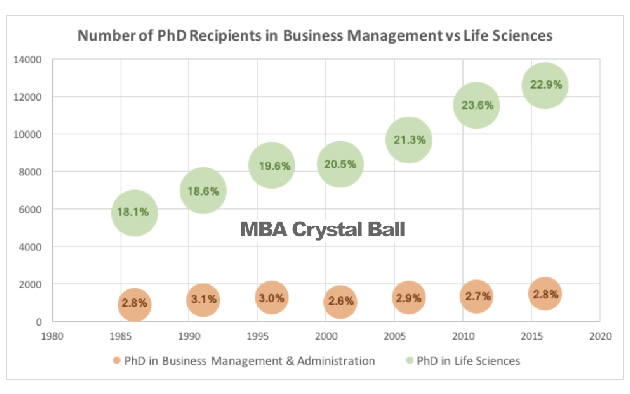
The natural question, that follows, is what eludes PhD, in Business, from your everyday household fame?One of the possible reasons being that most business degrees have a lot more commercial capacity as compared to an academic one. Individuals who have an aptitude for business and have secured an MBA from any of the top few tiers of B-schools, generally follow the blazing path of success marked by their predecessors.
The most cited reason, for avoiding the path of business research is the ROI for the years invested, and the cost of opportunity lost while pursuing a semi-decade long journey towards the degree.
With the MBA degree taking a couple of years with average starting salaries north of $90,000, it is not a shocker to realize why some people would rather continue gaining work experience, and the fat paychecks, sans the PhD and its associated delayed gratification, if any (read Average MBA Starting Salary ).
That being the obvious reason, there is clearly another significant factor keeping most business graduates away from a doctoral path – research is not their calling.
This brings us to the next question.
Why PhD after MBA?
What makes a PhD after MBA an attractive option? The thrill of research. The PhD program offers an opportunity to conduct independent study, scholarly research, and obtain an in-depth knowledge of a specialized field, which would be otherwise only superficially available to the more practical, commercially useful MBA degree.
The research training provides an awareness of the cutting-edge developments and the ability to evolve new insights at solving business problems. Doctoral graduates have years of experience in data analysis and data driven decision making, they are practiced with various research methodologies such as modeling, experimental methods, econometrics, field studies, and more.
As long as the individual has an aptitude for research, the real-world experiences of an MBA degree can motivate him to study relevant business problems.
The most common career path, offered after a PhD post MBA, is teaching. Faculties involved in active research, being an attractive indicator of b-school excellence, prompts a lot of well-known MBA, or other business programs, to hire PhDs as b-school professors.
QS Business School Rankings, for instance, takes in academic reputation and research paper citations into consideration for overall ranking. So does Financial Times MBA, EMBA and Online MBA Rankings. UT Dallas has a business school ranking list based solely on publication statistics in 24 leading business research journals.
Clearly, there is a competitive advantage afforded to PhD job applicants compared to MBAs, when it comes to protecting the interests of business schools. Success, in teaching and research, can lead to some very lucrative compensations.
Salaries, for some of the top b-school faculties, can be in the millions. (Read How much do top business school professors get paid? )
Other golden opportunities may even lead MBA+PhDs into consulting work in either well-known firms, or their own entrepreneurial ventures. PhDs derive wisdom from their theoretical, and uniquely devised methodologies for analysis, which when combined with the experiential training obtained during MBA, makes for a tremendous body of knowledge.
Hedge Funds are extremely selective about their recruits. While a lot of hedge funds believe in practical expertise more than academic experience, they are still known to hire PhDs to fill their analyst positions. Besides CFAs, MBAs, and other Master’s candidates, nearly 3% of hedge fund employees have a PhD.
What kind of specializations are available to PhDs in Business?
PhD in Business Management, or its close kin Doctor in Business Administration (Harvard HBS), follows a variety of areas of study, often in collaboration with other departments. Some of those specializations are listed below (gathered from various b-school curricula, viz. Stanford GSB , Wharton , HBS ).
- Accounting: Research focuses on solving issues, related to accounting, using economics, decision theory, and statistical inference.
- Business Economics: This specialization combines economic analysis with business. The areas of focus may range from Behavioral Economics, Development Economics, Urban Economics, Risk Management, Economic Analysis & Policy, Organizations & Markets, Corporate Governance, and more.
- Finance: Research focus, such as in Wharton, is set on Asset Pricing, and Portfolio Management, Corporate Finance, International Finance, Macroeconomics, etc.
- Marketing: Research focus lies on solving marketing management issues faced by companies. Areas of study usually involve behavioral decision making, economics, industrial organization, statistics, management science, and more.
- Operations, Information & Technology: This area of research, such as in Stanford GSB, studies management of systems, processes, and networks. They include health care systems, product design, manufacturing, information systems, decision-making, operations management, etc.
- Organizational Behavior: Research on concepts of psychology and sociology and their impact on behavior within complex organizations.
- Management: The specialization deals with management and leadership challenges.
- Strategy: Research studies the heart of what sustains and develops industries with competitive advantage.
The above list is not exhaustive and every b-school tailor their research target to set their competitive edge, so to speak. The other common specializations include, Ethics & Legal Studies, Health Care Management, Applied Economics, Decision Sciences, Human Resource Management, and more.
Employment Options of Business PhD Graduates
While a majority of doctoral graduates find positions as faculties in reputable business schools, a fraction of them carry on in post-doctoral studies or head towards industry positions. Firms like McKinsey, Morgan Stanley, SEC, and more, are known to hire PhDs regularly.
Nearly 80% of graduating doctoral students are employed as faculty members in various business schools over the world, with the rest 20% employed in various industry positions. We have compiled the following table to reflect the employers of past PhD candidates from reputed business schools, mainly Wharton, HEC Paris, and Chicago Booth.
Business School with Popular Research Programs
UT Dallas’ Naveen Jindal School of Management has created a business school ranking based on publications in 24 leading business journals, mentioned here . Some of the top research schools, assessed between 2012-2016, based on the ranking, are listed below.
The two related degrees of a Business PhD, in addition to an MBA, provide a set of well-rounded skills that are quite unique. These skills are not just desirable in mentors of the future business leaders, but also play a significant rolein gaining a thorough insight of the world of business management.
Recommended reading for the curious reader:
- PhD in Management Abroad
- Fully funded PhD, with stipend in Europe
- Is a PhD worth it?
- PhD in USA for international students
- How to choose your PhD topics?
Sources: 1 , 2 , 3 , 4 , 5 , 6 , 7
Watch an M7 MBA admit reveal his application strategy Mini-MBA | Start here | Success stories | Reality check | Knowledgebase | Scholarships | Services Serious about higher ed? Follow us:

16 thoughts on “PhD after MBA”
Hi I have done BCA+MCA from IGNOU. I got 92 percentage in BCA and 84 percentage in MCA. I have also worked as Software developer while doing my MCA for 3.5 years in a small start- up firm. I want to do MS in Computer Engineering. My question do top and middle tier American universities accept degrees from IGNOU (although it is a distance education IGNOU is recognised by government of India under act of parliament ) So Is my degrees from ignou valid for admission for MS in top american universities
Hi, I am pursuing PhD in India on the topic Organisational behaviour. But i am interested to do in USA. please tell me the ways if i can apply in some of the university’s. I am in US at present. kindly help me
Hello, I am name is Ankita, I have completed my Masters in Microbiology (Pune University). And I have been working in CSIR-URDIP as a patent analyst for the last 2 years now. As the place I am working at doesn’t give any kind of security in future, I have been off lately thinking about either apply for PhD abroad or MBA or do some courses regarding patent analysis abroad. Can you please give me any suggestion regarding what to do at this stage ?
@Dheeraj: There are some universities who consider IGNOU degrees. But it depends on which course you’re applying for. So best to check with them directly. We have some inputs for the MBA degree here: https://www.mbacrystalball.com/blog/2014/02/17/mba-after-correspondence-courses-distance-education/
@Sanam: You’d probably have to reset the call and start afresh. Specially if your current work has little or no overlap with what you plan to do in the US.
@Ankita: The decision would hinge on what you want to do after the degree. For a business oriented role, an MBA works best. For academic roles, a PhD works better.
Hello.. I have done MBA(HR & MK)in 2018.. I wanna take admission for phd in IIT’s.. Plz suggest me how can apply for this Thnks
Hi, I have done MBA ( management and leadership) in 2018 from Keiser university, Fl . I want to start PhD in supply chain. Please suggest me how can I apply for this. Thanks
Hi myself Rupak Debnath I have done MBA in MARKETING and HR and now I want to pursue PhD degree from IGNOU. My question is will it be right enough to opt a higher degree from open University and how much can I be benefited from the decision I have taken?? Please reply without any hesitation……….. waiting for your valuable reply………. Thanks
hi, I have done my MBA in HR and now i want to pursue phd in economics in hyderabad central university. am i eligable to apply and if yes , how to do that. kindly please let me know. regards, bindu yamini.
Could you please guide which PHD Programm will be approraite post “MBA in Consultancy Management”
hi i have completed my B.tech in mechanical engineering+ now i completed my MBA in Marketing& finance now i want to do phd in the operational manger field pls suggest something…
Pros and cons of doing PhD in Business Management after M.Com
Hi I had completed my mba in marketing in 2005 now i want to do p.hd from Canada.. Pls suggest…
Am Naveen an International Business Marketing Consultant having completed PGDM in Marketing + IT and hold BBM in International Business and seek a PHD in similar field. Alternatively, am working a Managing Partner for a Jewel Store too. As am traveling on a daily basis I want to complete my PHD to teach full-time at universities or colleges worldwide. Thanks
Assalam o Alakom I have don my MBA 3.5 year and HR Now to pursue PHD .am i eligable to apply for PHD..how to do that. kindly pleas i want to brief me in detail explain trough whatsaf way +923428966603 regards, Muhammad Hanzala
Sir,Can I eligible for phd program(Europe countries).After completion of mba(open degree) program in india.
Hi, I am Ankit from India, I did complete my MBA with Finance in 2016 and I have 4 year experience in same profile. Now I am looking Phd program in Finance in USA.
Leave a Comment Cancel reply

Pursuing a PhD After MBA in India: What to Know
Starting a PhD programme after your MBA is a thrilling step for those in India. It’s a chance to dive deep into research and learn more. This guide will cover everything you need to know about getting a PhD after your MBA . We’ll talk about the benefits, who can apply, top universities, special areas, how to get in, and the good and bad points.
Key Takeaways
- The percentage of MBA graduates opting to pursue a PhD in India is on the rise.
- A growing number of directors and managers in the corporate world are striving to obtain PhD degrees after their MBA.
- There are numerous universities in India that offer PhD programmes in Management disciplines.
- The minimum marks required for eligibility to pursue a PhD after an MBA is 55%.
- MBA graduates can apply for PhD programmes at a wide range of universities across India.
Introduction: Exploring the Path to a Doctoral Degree After MBA
Getting a PhD after an MBA is a smart move for those wanting to go deeper in their studies. In India, it’s a chance to use your MBA knowledge to specialise in a field you love. This journey is a great way to boost your career and research skills.
Overview of the Doctorate Journey in India
A PhD in India usually takes 4 to 7 years to finish. But, some programs can be done in 3 to 5 years. About 80% of PhD graduates become teachers, and 20% go into the corporate world. PhD students in India can earn between 7 to 17 lakhs a year. Online PhDs are often shorter, lasting 3 years.
Significance of Pursuing a PhD After an MBA Degree
Popular PhD specialisations after an online MBA in India include Finance and Marketing. Entrance exams for PhD programs include UGC NET and GATE. The time it takes to finish a PhD varies by university and subject. Online MBA degrees from UGC-approved universities can lead to PhD programs in India and abroad.

Eligibility and PhD Entrance Requirements After MBA in India
To apply for a PhD after an MBA in India , you need to meet certain requirements. These include educational qualifications and work experience . This section will cover what you need to do to start a PhD after your MBA in India .
Also Read: Easy way to Get a PhD in India
Educational Qualifications and Work Experience Criteria
You must have a master’s degree to apply for a PhD after an MBA. This degree should be in the same or a related field as your research area. You also need a strong academic record, with at least 55% marks or a similar GPA.
Most PhD programs in India after an MBA also look for relevant work experience . This experience can be a few years or more, based on the institution and your research area. This shows you understand the field and can do research well.
A PhD after an MBA in India usually takes 3 to 5 years. Abroad, it can take 4 to 7 years. The salary for PhD students in India ranges from INR 10,00,000 to INR 15,00,000. This depends on your specialisation and the institution.

Top Universities Offering PhD Programs Post-MBA
India has many top universities and research places for those with an MBA. The Indian Institutes of Management ( IIMs ), Indian Institutes of Technology (IITs), and National Institutes of Technology (NITs) are some of them. They offer great PhD programmes for MBA holders.
These places let PhD students pursue a career in teaching or research. They have many PhD specialisations . You can choose from Finance , Marketing , Human Resource Management , and more. PhDs in India last 3 to 5 years, based on the school and your study area.
To get into these universities, you must go through a tough selection. This includes exams, interviews, and a detailed research proposal . You need a good academic record, at least 50% in your master’s. You might also need GMAT or GRE scores.
Getting a PhD after an MBA opens up many career prospects . You could work in teaching, research, or top management. With hard work and the right support, studying for a PhD at India’s top universities can change your life.
Other Universities that offer full time and part time PhD after MBA include Vels University, Amit University etc.
Popular PhD Specialisations After Completing an MBA
After finishing an MBA, you might want to get a PhD in management subjects. This can make you an expert in your field. Some top PhD specialisations include:
PhD in Finance, Marketing, and Human Resource Management
For those keen on finance, a PhD in Finance after an MBA is a great choice. It covers advanced finance topics like corporate finance and financial modelling. A PhD in Marketing lets you study consumer behaviour and digital marketing deeply. Or, a PhD in Human Resource Management focuses on managing talent and organisational growth.
These PhD programmes usually last 3 to 5 years in India. They include courses, research, and a thesis defence. Top places like the Indian Institutes of Management ( IIMs ), Faculty of Management Studies (Delhi), and the National Institute of Industrial Engineering (NITIE) offer these PhDs after an MBA.
Getting a specialised PhD after an MBA can lead to many career paths. These include jobs in academia, research, consulting, and top leadership in companies.
The Admission Process: Entrance Exams and Interviews
Getting into a PhD after an MBA in India means going through a detailed process. This includes entrance exams and personal interviews. You need to show you’re good at academics, research, and committed to your field. Also Check : PhD Without UGC NET
Preparing for PhD Entrance Examinations
The first step is passing the entrance exam . You might need to take UGC NET, CSIR NET, or exams from places like IIMs and XLRI. These tests check your analytical skills, knowledge, and research ability. Getting ready by looking at past papers and doing mock tests can really help.
Crafting a Compelling Research Proposal
Writing a good research proposal is key too. It should cover your study area, goals, methods, and what you hope to achieve. A strong proposal shows you know your stuff and can add to the field. Get advice from teachers or experts to make your proposal better and match it with the university’s focus.
By doing well in entrance exams and writing a strong research proposal, you can start a fulfilling PhD journey after your MBA. This opens up new chances for growth in both your studies and career.
Conclusion: Weighing the Pros and Cons of a PhD Journey
Getting a PhD after an MBA in India is a big step. It means you’re ready to dive deep into research and a specific area for 4 to 7 years. Think it over well, as it changes your career and life a lot.
A PhD can lead to jobs in research, teaching, or special roles. It’s great if you want to be a professor or work in research. The PhD’s focus on data and critical thinking makes you stand out in the job world.
But, getting a PhD is hard work. It might take 5 years or more, and it’s expensive. Tuition and living costs add up. Also, getting a professor job is tough, even for top PhD graduates .
So, deciding on a PhD after an MBA in India depends on your goals and life situation. If you love a research area and can handle the time and costs, a PhD could be right for you. But, if you want to move up in business, an MBA might be better.
Please Contact Us for Guidance for PhD After MBA from the Best Private and Deemed Universities in India (Full time & Part time)
Related Posts

Easy Way to Get PhD in India: A Complete Guide
Getting a PhD in India is a great step towards a fulfilling career in academia or research. This guide will […]

PhD in Microbiology in India: Universities & Fees
Are you thinking about getting a PhD in Microbiology in India? It’s an exciting path. This degree dives deep into […]
3rd Floor, M.V. Chacko Building , Angamaly, Ernakulam, Kochi Kerala, India . Pin code- 683572
Email: [email protected] call & whatsapp: +91 8304870711.

Career Scope & Valuable Reasons to do PhD after MBA

Blog Summary
Unlock the potential of your career with a PhD after MBA in Management. Discover how this esteemed degree can elevate your expertise and impact in the business world. From gaining credibility to refining leadership skills, explore the myriad benefits outlined in our comprehensive guide. Dive deeper into the advantages of online learning and accreditation, ensuring a seamless journey towards your academic and professional aspirations. Join us on a transformative path towards scholarly excellence and practical mastery in management studies.
A rising number of PhD management degree holder
Whether you wish to become an academic teacher or help companies solve critical management issues, a PhD after an MBA degree in management will offer a path to greater credibility, influence, and impact.
PhD degree in a management program is usually grounded in preparing you with the skills and buoyancy you need to complete your thesis.
A PhD in Management empowers professionals in business and corporate to excel as leaders, scholars, and change-makers.
How to Get a PhD in Management
You can join PhD in management after an MBA or easily complete an online doctorate degree in management after your Master’s in Business Management. The pandemic has slowed the world down; schools, colleges, and most services have gone online.
PhD in management online programs were available even before the pandemic. You can complete your doctorate with full support from business experts and at your own pace.
More college graduates decide to pursue a master’s or doctorate degree in management. In recent years, the number of doctoral degree holders has grown to 4.5 million. Prospective students pursuing a PhD in management are increasing because they want to become experts in their chosen field. While there are many reasons to get a PhD after an MBA, it is a fact that you gain more knowledge and pass it on to the upcoming generation.
Benefits of Earning Your PhD after MBA in Management
There are plenty of reasons to pursue a PhD in Management, from gaining a competitive edge to becoming a scholar-practitioner.
Be it contemplating your career or seeking to address your management challenges, a PhD in Management can help you accomplish your goals, personal and professional. Are you wondering how a PhD after an MBA can better transform you, your career, and others? Here it is.
For further insights into the benefits and considerations of pursuing an online PhD in management, we invite our audience to explore our blog titled “ Why Opt for an Online PhD in Management Today .”
Gain a competitive edge When you choose to move ahead in your career, PhD in Management online program will become a marketable asset that will provide you competitive advantage in today’s fast-moving business world.
- Become a better problem solver A good PhD in Management program inspires you to do more than receive knowledge. It helps you to share knowledge with the whole world. You will also be achieving new levels of critical thinking that you can apply in new and exciting ways in your career and your field of interest.
- Refine your expertise A PhD in management will, through distance or online learning, give you ground in new strategies for leading businesses and people in an increasingly interlinked global society. It is sure to hone your strategy for leading people in an increasingly interwoven international community.
- There may be repetitive questions in your mind as to why get a PhD in business. But the benefits are vivid; you can gain universally applicable skills for uplifting companies in any sector. Also, as you gain inside-out knowledge, you are sure to create a place for yourself in the current role you are in and make a more significant impact. There are chances that even your friends and family members turn to you for advice and guidance on business-related issues.
- Evolve as a scholar-practitioner PhD after an MBA will give you the knowledge and self-confidence to attend academic conferences and present papers. You’ll discover your inner voice as a scholar and write a dissertation.
- A competitive pay You are sure to receive higher pay soon after you finish your PhD in business. There is always a tremendous demand for PhD holders in universities to teach students and the business field for various positions. You can create a difference in your organization and also in your community. By transferring the latest concepts and theories, you can bring changes after your PhD in Management degree.
Choosing the Best Online University
It all starts with choosing the best university to earn a PhD or doctoral degree. Earning a degree can be more feasible and much more valuable if you choose the right online platform to pursue your PhD degree.
Accredited university
You must ensure you receive a quality education by choosing an accredited university. It could be online or offline, but choosing the right university is recognised and accredited by an accrediting organization.

Diving into Public Health Research: A Weapon Against Pandemics

Charting Africa’s Economic Destiny: The Globalization Equation

MPA or MBA: Making the Right Decision for Your Career

Clinical Research Excellence: Murugananthan’s TAU-UCN PhD Story

Understanding the Importance of Public Health Before Choosing it as a Career!
Related posts.

7 Reasons an Online DBA is Your Gateway to Success in 2024

Chart Your Course: Why Opt for an Online Ph.D. in Management Today

Master Your Destiny: Propel Your Career with an Online Doctor of Business Administration

Unlocking Success: Your Roadmap to a Ph.D. in Management

Empower Your Career: Accelerating Advancement with an Online PhD in Management

Unlocking the Power of a Doctor of Business Administration: An Informative Guide
- More Networks

45,000+ students realised their study abroad dream with us. Take the first step today
Here’s your new year gift, one app for all your, study abroad needs, start your journey, track your progress, grow with the community and so much more.

Verification Code
An OTP has been sent to your registered mobile no. Please verify

Thanks for your comment !
Our team will review it before it's shown to our readers.

MBA after PhD
- Updated on
- Jul 4, 2024
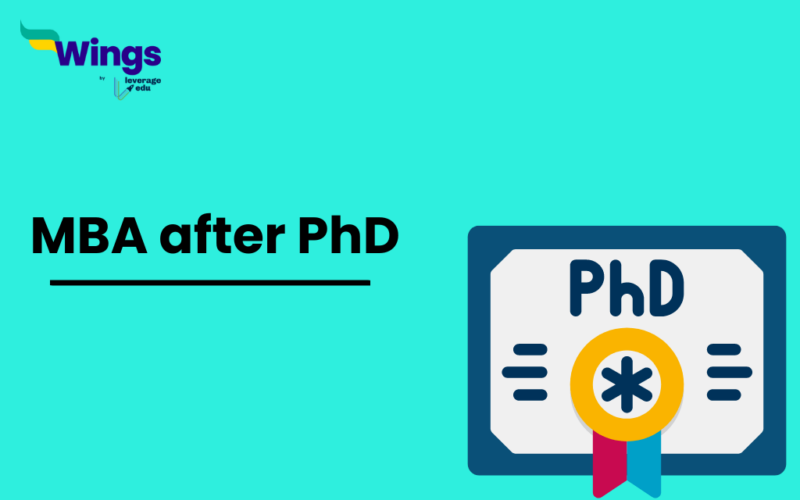
A qualification, regardless of level and field of study, will never be a waste; one just needs to realize how to use it wisely and appropriately. As we navigate through life we shift our perspective and interests, our education choices, therefore, need to reflect this.
Usually, students with PhD do not plan to study ahead, but MBA is an opportunity that it is not easy to let go of, especially as it allows professionals to enter the corporate world with great opportunities ahead. In this blog, let us understand what it takes to study MBA after Ph.D .
This Blog Includes:
Benefits of mba after ph.d., who earns more mba or ph.d., top mba entrance exams, top indian universities for mba, top foreign universities for mba, top 6 countries to study mba after phd.
Ph.D. armed you with tenacity, discipline, critical analysis of information, and knowledge unparalleled by anyone else in the exact topic of your research. It qualified one as a specialist. It provides a sound research focus, whereas MBA on the other hand provides a sound business and leadership focus.
It is understandable that a PhD is the highest degree that one can have, but there is no hard and fast rule that one cannot pursue MBA after completing their PhD. Ph.D. might restrict you in one field and does not let you explore a job in another field.
Also, some upper management positions may require some business expertise and if your Ph.D. is not based in the business field, considering an MBA can give you that push in the business area. An MBA after a PhD not only offers great career opportunities but also guarantees a highly paid job and lets you develop a strong professional network. An
MBA will offer you a wealth of advantages, especially when it’s from a well-reputed business school . There are many good reasons for pursuing an MBA after PhD and here is a detailed guide about how doing an MBA can benefit your career:
- Develop advanced and flexible management skills.
- It gives you greater business network opportunities.
- It helps you make the transition from academia to industry.
- One can start their own company from scratch.
Here is a table containing general differences between an MBA and a PhD
Incorporate sector a Ph.D. holder draws an average salary of 10 Lakhs in India. Whereas with 1 to 4 years of experience, early career MBA salary in India can grow up to 7-8 Lakhs.
There are various MBA entrance exams that are open with admission opportunities in top B-School. The list of top MBA exams is given below:
- National Level: CAT , CMAT , and MAT
- International Level: GMAT, GRE , IELTS , and TOEFL
- University/College Level: XAT , SNAP , IIFT
The table below lists the application dates and exam dates of top MBA exams:
When we talk about MBA in India, the first university which struck our mind is IIM. However, with time numerous universities have made it to the list of top MBA colleges. Below are the top B-Schools in India with their flagship program, entrance exams, and great salary packages post-MBA.
- IIM Ahmedabad
- IIM Bangalore
- IIM Calcutta
- XLRI Xavier School of Management, Jamshedpur
- Indian School of Business (ISB), Hyderabad
- SPIMJR, Mumbai
- IIM Kozhikode
Pursuing an MBA in a foreign university offers you the opportunity to have a globally recognized degree and explore job opportunities abroad with a higher salary, and career growth. MBA abroad requires a Bachelor’s degree and work experience for at least 4-5 years. Here we have listed some of the top universities you can consider for pursuing an MBA:
- The Wharton School, Pennsylvania
- London Business School, London (UK)
- Stanford Graduate School of Business, Stanford (MA)
- MIT Management, Cambridge (MA)
- Harvard Business School, Boston (MA)
- UC Berkeley, Berkeley (CA)
- Columbia Business School, New York
- F rankfurt School of Finance & Management, Germany
- Nanyang Technological University (NTU)
For aspirants who are planning to get an MBA degree, here is the list of best places to study MBA for a successful career in the future:
- United Kingdom
- United States
Also Read: Best Country for MBA
The Ph.D. is a research-oriented path, while MBA is a practice of business. Learning more about non-profit marketing through a business program might help you advance in your career. An MBA is very general/broad in nature, it covers many subjects, most of which have an entire master’s degree path in and of itself whereas a Ph.D. is so much more about only one thing.
Leading business schools in India like IIMs, XLRI, NMIMS, etc. offer financial help to deserving candidates to complete their management studies. Different universities offer different scholarship programs for students belonging to every category. Candidates who have obtained a first degree of at least upper second class honors standard, or a second-class degree and a Master’s degree or relevant postgraduate qualification are eligible for the Ph.D. scholarships of this program.
The most basic requirement for pursuing an MBA abroad is a Bachelor’s degree from a recognized university; preferably a full-time degree from a reputed institute. The second major pre-requisite of a foreign MBA is substantial work experience of a minimum of 3-5 years.
Yes, anyone can pursue an MBA after their doctoral degree. An MBA can boost your career journey, and skills learned through MBA are geared towards the industry.
Related Reads
We hope you understand that it is possible to study MBA after PhD in this blog. Follow Leverage Edu India’s no. 1 leading educational platform for related informative blogs. Please put your comments below in the comment section.
Team Leverage Edu
Leave a Reply Cancel reply
Save my name, email, and website in this browser for the next time I comment.
Contact no. *

Leaving already?
8 Universities with higher ROI than IITs and IIMs
Grab this one-time opportunity to download this ebook
Connect With Us
45,000+ students realised their study abroad dream with us. take the first step today..

Resend OTP in

Need help with?
Study abroad.
UK, Canada, US & More
IELTS, GRE, GMAT & More
Scholarship, Loans & Forex
Country Preference
New Zealand
Which English test are you planning to take?
Which academic test are you planning to take.
Not Sure yet
When are you planning to take the exam?
Already booked my exam slot
Within 2 Months
Want to learn about the test
Which Degree do you wish to pursue?
When do you want to start studying abroad.
January 2025
September 2025
What is your budget to study abroad?

How would you describe this article ?
Please rate this article
We would like to hear more.
Join CollegeSearch Family
Register & enjoy the perks of a Universal College Application, Easy Process, Time-saving, and Free Contact details and Brochures.
Monthly Users
Monthly Applications
Popular Colleges by Branches
Trending Search
Top MBA Colleges in Delhi/NCR
Top MBA Colleges in Bangalore
Top Engineering Colleges in Delhi/NCR
Top Engineering Colleges in Bangalore
No Result Found
Home > Articles > PhD after MBA: In India, Admissions 2024, Entrance Exams, Fees
PhD after MBA: In India, Admissions 2024, Entrance Exams, Fees

Sheeza Khan
Updated on 20th February, 2024 , 8 min read
A PhD after an MBA is an advanced program where you can become a doctor in a specific area of business Finance, Marketing, Operations, or Human Resources. To qualify, you generally need a 2-year MBA degree and you should pass exams like UGC-NET or GATE . Having a good score, a research plan, recommendations, and work experience make it more likely to get into a top MBA college. It usually takes 3-5 years to finish a PhD after MBA in India, but it could be 4-7 years abroad.
Also read: Top PhD Entrance Exams in India
In the realm of MBA dreams, institutions like FMS New Delhi , BHU , the prestigious IIMs, and the ingenious IITs stand tall as the elite havens for pursuing a PhD after your MBA adventure.
Further Reading: IIT Madras PhD Admission 2023
Venturing into the realm of a PhD after MBA opens doors to the realms of teaching and delving deep into the realms of research. Many of you might be wondering about the average salary package spanning from INR 2,00,000 to INR 14,00,000.
More PhD Courses:
More about MBA:
PhD After MBA: Course Details

Also read: GATE Study Material
Why pursue PhD after MBA?
Pursuing a PhD after an MBA in India can offer several compelling benefits:
- Deep Expertise: A PhD allows you to specialize and delve deeply into a specific area of business, enhancing your expertise and knowledge in your chosen field.
- Research Opportunities : A PhD program provides you with the chance to contribute to cutting-edge research in business and management, potentially leading to valuable insights and innovations.
- Academic Career : If you aspire to an academic career, a PhD is often a requirement for becoming a professor at universities and business schools, allowing you to educate the next generation of business leaders.
- Career Advancement : A PhD can set you apart in the job market, opening doors to higher-level positions and leadership roles in both corporate and non-corporate sectors.
- Personal Fulfillmen t: Undertaking a PhD is a journey of personal growth and intellectual challenge, allowing you to engage deeply with your chosen subject matter and develop critical thinking skills.
- Networking : Doctoral programs provide opportunities to connect with experts in your field, fellow students, and professionals, expanding your professional network.
- Enhanced Problem-Solving: PhD programs often cultivate advanced problem-solving skills, which can be applied to complex business challenges.
Also Read: Tips to prepare for UGC Net
More MBA Courses:
Who should pursue PhD after MBA?
Eligibility criteria for pursuing a PhD after an MBA in India can vary depending on the specific university, institute, and program. However, there are general requirements that are commonly applicable:
- MBA Degree : Candidates must hold a Master's in Business Administration (MBA) degree from a recognized university or institute. This demonstrates a foundational understanding of business and management concepts.
- Minimum Marks: Many institutions require candidates to have obtained a certain minimum percentage or grade point average (GPA) in their MBA program. This threshold can vary, but it's typically around 55% or equivalent.
- Relevant Subjects : The candidate's MBA specialization should align with the field of study they wish to pursue for their PhD for instance, if you want to pursue a PhD in Marketing, your MBA specialization should have been in Marketing.
- Entrance Exam: Some universities and institutes may require candidates to clear a relevant entrance examination specific to the PhD program they are interested in. This could involve subject-related questions, research aptitude, and general knowledge.
- Research Proposal: Applicants are often required to submit a research proposal outlining their intended area of research. This proposal should demonstrate a clear research question, objectives, methodology, and potential contribution to the field.
- Work Experience : While not always mandatory, having relevant work experience can be advantageous, especially for certain specialized PhD programs. It can demonstrate practical knowledge and a real-world perspective on the subject.
- Interview: Some institutions may conduct interviews as part of the selection process. This is an opportunity for candidates to discuss their research interests and demonstrate their commitment to the program.
- Qualifying Examinations : In some cases, candidates might need to qualify for national-level exams such as UGC-NET (University Grants Commission - National Eligibility Test) or GATE (Graduate Aptitude Test in Engineering) to be eligible for certain PhD programs.
PhD after MBA: PhD Finance Course Details
PhD in Finance is a research-focused program offering strong academic prospects. Typically pursued after an MBA in Finance , it's available at esteemed institutions such as IIMs, FMS New Delhi , ISB , and IIT. The program delves into topics like Share Valuation, Privatization, Globalization, and Management Accounting.
Further Reading: MBA Finance Syllabus & Subjects
PhD after MBA: PhD Marketing Course Details
PhD in Marketing is a 3-year program aimed at training students for teaching and research in marketing and related domains. Admission is based on entrance exams and interviews. Candidates with relevant postgraduate qualifications, including an MBA in Marketing, can apply. The program offers diverse career paths, like Market Research Analyst, Marketing Communications Leader, and Marketing Executive.
Further Reading: MBA in Marketing
PhD after MBA: PhD Organizational Behavior Course Details
PhD in Organizational Behavior is a 3 to 5-year program studying human behavior in organizations. Eligibility requires a master’s or MPhil degree with a 55% minimum aggregate after an MBA in Organizational Behavior. Graduates can secure positions in Academic Institutions, Colleges, Finance, Marketing, IT, etc., with average salaries ranging from INR 4,00,000 to INR 8,00,000.
PhD after MBA: PhD Business Management Course Details
PhD in Business Management is a 3-year program focusing on business operations like leadership, organization, and planning. Eligibility requires a master’s degree with relevant subjects and a minimum aggregate of 50% or more, post-MBA in Business Management.
PhD after MBA: PhD HR Management Course Details
PhD in Human Resource Management is a 3 to 5-year program focusing on teaching organizational processes for productivity enhancement. It prepares students for HR management roles, requiring a master’s degree from a UGC-recognized or foreign university post-MBA in HR Management.
PhD after MBA: PhD Management Studies Course Details
PhD in Management Studies is a 3-year program imparting management and organizational skills. Eligibility requires a master's degree in a related field with 50-60% aggregate, post-MBA in Management Studies.
Further Reading: BMS Course Details
PhD after MBA: PhD Banking and Finance Course Details
PhD in Banking and Finance is a 3-year program designed to provide comprehensive knowledge in domestic and international banking, economics, and investment. A master's degree from a recognized university is the minimum eligibility for PhD after MBA in Banking and Finance. Graduates can secure positions in educational institutions, stock exchanges, banks, etc., with average salaries ranging from INR 1,80,000 to INR 6,00,000.
Further Reading: MBA Finance Jobs
PhD after MBA: PhD Disaster Management Course Details
PhD in Disaster Management is a 3-year program focused on Environment and Disaster Management. Eligibility entails a master’s degree or M.Phil in the relevant field with at least 55% aggregate and 5 years of work experience.
Also Read: PhD in IGNOU
PhD after MBA: PhD Commerce and Management Course Details
PhD in Commerce and Management is a 3-year program focusing on commerce and business management education. To qualify for PhD after MBA in Commerce and Management, candidates need a master's degree, MBA, or MPhil with at least 55% aggregate.
Further Reading: BMS Subjects & Syllabus
Similar Articles
Top 5 Jobs After MBA
MBA Admission 2024-25: Eligibility, Selection Criteria, Procedure, Entrance Exams, Top Colleges, Cut Off
MBA Entrance Exams 2024: Dates, Registration, Syllabus, Pattern
Frequently Asked Questions
Can phd be done after mba.
Certainly, it is possible to pursue a PhD after completing an MBA. To embark on a PhD journey, an individual should possess a master's degree in relevant fields, accompanied by a minimum aggregate score of 50-60%.
What are the PhD courses after MBA?
PhD programs in Finance, Management Studies, Business Management, Business Administration, Banking and Finance, and Marketing stand out as prominent choices for further studies following an MBA.
Can I do a PhD from IIM?
Indeed, the Indian Institutes of Management (IIMs) provide PhD programs subsequent to MBA studies in disciplines such as Human Resource Management, Business Management, and Business Administration, among others.
Can I do a PhD after MBA in HR?
Indeed, undertaking a PhD following an MBA in Human Resource Management presents advantageous prospects for embarking on roles such as HR managers, executives, consultants, and various other related positions.
Does a PhD after MBA make sense?
Certainly, pursuing a PhD after completing an MBA is a strategically sound choice, offering distinct advantages in terms of enhanced job prospects and a strengthened position in the realm of teaching professions.
How many years is PhD after MBA?
PhD after MBA is normally for 4 - 6 years.
Deep Expertise, Research Opportunities, Academic Career, Personal Fulfillment and Networking.
PDF Preview
Popular Colleges/Universities
Top Colleges by Courses
Top Courses

IMAGES
VIDEO
COMMENTS
To answer the budding question: yes, you can pursue your PhD after earning your MBA, and choosing to earn a doctorate is entirely up to you and your aspirations. To help you better understand if getting a PhD is the right choice, we look at the path an MBA graduate can take to earn their PhD, one of the higher purposes of a doctorate, and the ...
DBA training may help you develop deeper knowledge than an MBA program will while opening doors to more ambitious careers in industry or academia. While MBA degrees are designed to meet the needs ...
The doctoral program in Business Economics, which includes Finance and Applied Economics tracks, provides scholars with rigorous training in economic theory and a particular focus on economic analysis as it applies to the business world. Students in the Business Economics program are both Economics and Business school students, receiving the ...
MBA Two-year program for leaders in all industries.; MBA for Executives Rigorous executive MBA for accomplished professionals.; Master of Advanced Management MBA graduates of top business schools around the world spend a year at Yale.; Master's in Asset Management Intensive introduction to investing with leading faculty and practitioners.; Master's in Global Business & Society A year of ...
Some of the greatest intellectual challenges of our time are emerging from the broad fields of business management. Harvard Business School together with the Harvard Graduate School of Arts and Sciences offers PHD programs that reflect the changing world of business, society, and education.
MIT Executive MBA. The 20-month program teaches the science of management to mid-career leaders who want to move from success to significance. MIT Sloan Fellows MBA. ... The PhD Program is integral to the research of MIT Sloan's world-class faculty. With a reputation as risk-takers who are unafraid to embrace the unconventional, they are ...
Our PhD Program is designed to develop outstanding scholars for careers in research and teaching at leading academic institutions throughout the world. You will embark on a challenging and meaningful experience, focusing your academic study in one of seven distinct fields within the PhD degree program. ... Students in the MBA and PhD programs ...
Based out of the Piedmont Triad city of Greensboro, the University of North Carolina at Greensboro features an online Ph.D. in business administration that takes five years to complete. Distance ...
A PhD first and foremost prepares students for a career in academia, specifically to be a professor or an academic leader, such as executive director, academic dean, provost, or president. PhD programs focus on unique, theory-based research and publication of the findings of that research in academic journals and scientific books.
Most doctorate programs require a master's degree but not necessarily an MBA. Students with an MBA, however, are prepared for the training and expertise that comes at the doctorate level. Was ...
Top PhD Programs After MBA. The average duration of PhD after MBA is approximately 5-7 years where the 1st year is more theoretical but from the beginning of the second year, you can pick specializations as per your choice. In Business and Management, there is an array of specialised PhD courses that one can choose from. Here are the top ...
Career Opportunities After Completing an MBA-PhD Joint Program in the USA. Graduates of MBA-PhD joint programs are well-positioned for a variety of exciting career opportunities. Some go on to work in academia, conducting research and teaching courses related to business and management. Others may work in consulting, finance, or technology ...
The most common career path, offered after a PhD post MBA, is teaching. Faculties involved in active research, being an attractive indicator of b-school excellence, prompts a lot of well-known MBA, or other business programs, to hire PhDs as b-school professors.
You must have a master's degree to apply for a PhD after an MBA. This degree should be in the same or a related field as your research area. You also need a strong academic record, with at least 55% marks or a similar GPA. Most PhD programs in India after an MBA also look for relevant work experience. This experience can be a few years or ...
A PhD in management is a pathway to specialization or even sub-specialization, depending upon the candidate's MBA. PhD after MBA would allow professionals to tackle specific research areas and answer questions with the potential relevance to the business world. Here are some of the fields of PhD after MBA specializations: Accounting ...
You may currently hold a full-time job and maybe have any other unavoidable commitments. However, online education plays a significant role in achieving your goal and pursuing a doctoral program. With blended learning in place, you can easily earn an online PhD after an MBA in management or a professional doctoral degree.
PhD after MBA is a doctorate-level program offered in various MBA specializations such as PhD Finance, PhD Marketing, PhD Operation Management, PhD Human Resource Management, and others. The minimum eligibility criteria for PhD after MBA is a 2-Year MBA degree with qualifying either UGC-NET or GATE Exam. Along with the minimum qualifying score ...
MBA: PhD: MBA is a Generalist Degree. Ph.D. is a Specialist Degree. MBA usually takes two year to complete full time. Ph.D. can take four years: MBA students will usually research a broad range of subjects. Ph.D. students will only focus on one subject. MBA programs do offer some scholarships, but the total cost for this is undeniably quite high.
A PhD after an MBA is an advanced program where you can become a doctor in a specific area of business Finance, Marketing, Operations, or Human Resources. To qualify, you generally need a 2-year MBA degree and you should pass exams like UGC-NET or GATE. Having a good score, a research plan, recommendations, and work experience make it more likely to get into a top MBA college.
Graduates with an MBA degree in Fayetteville can expect starting salaries ranging from $70,000 to $90,000, especially for those specializing in finance or marketing, with many alumni reporting salaries exceeding $80,000 shortly after graduation. An MBA graduate from Fayetteville State University found success in healthcare management, securing ...